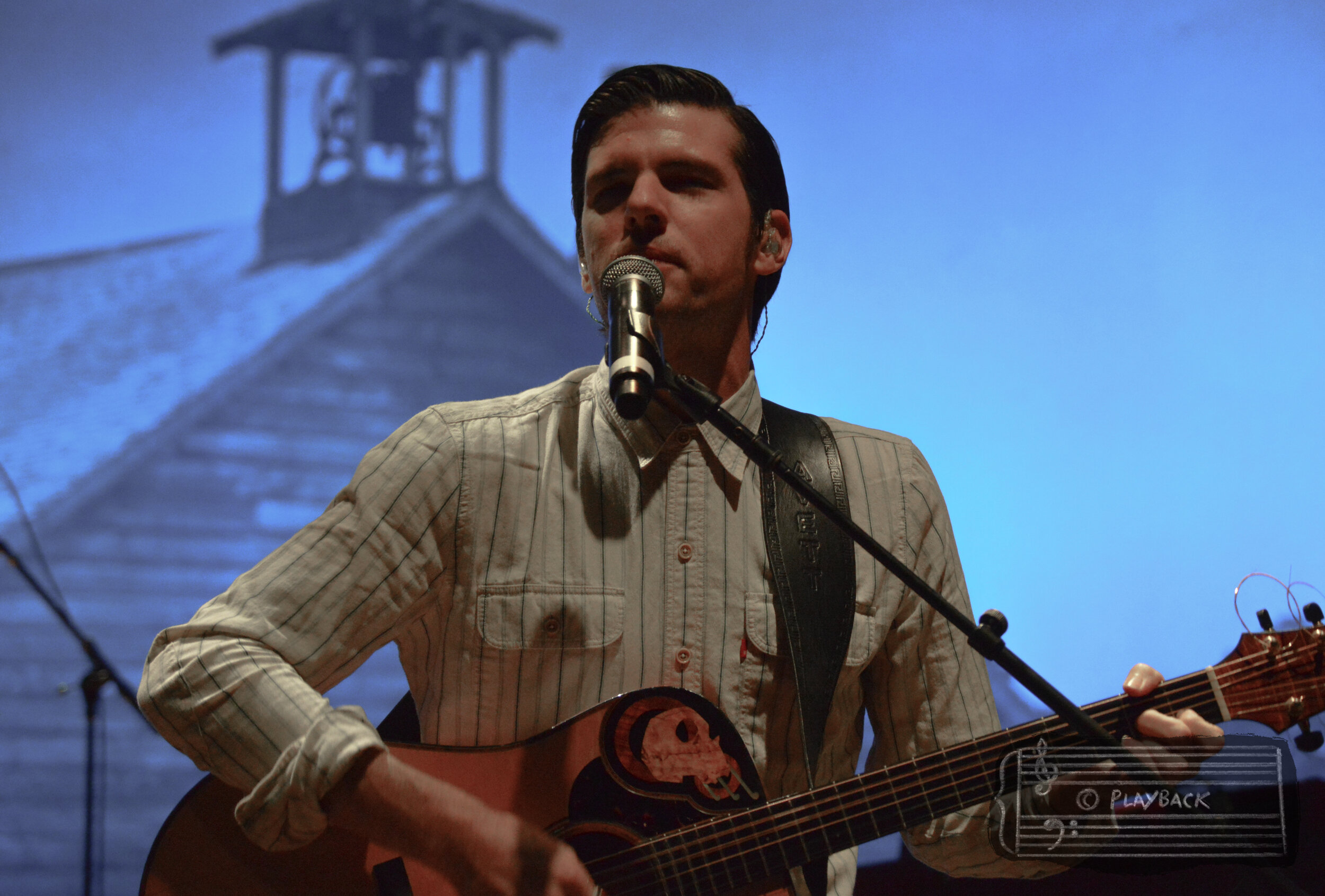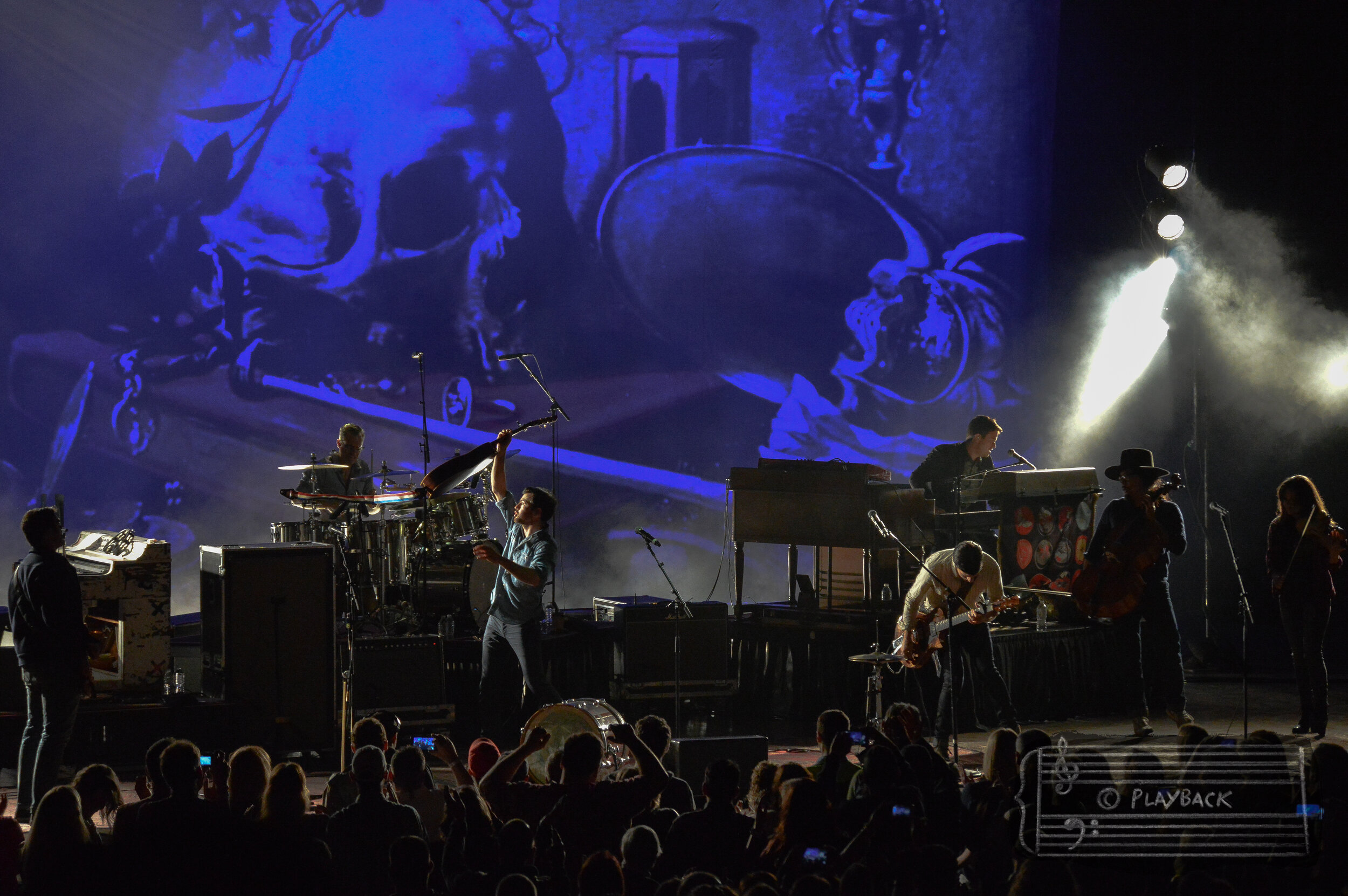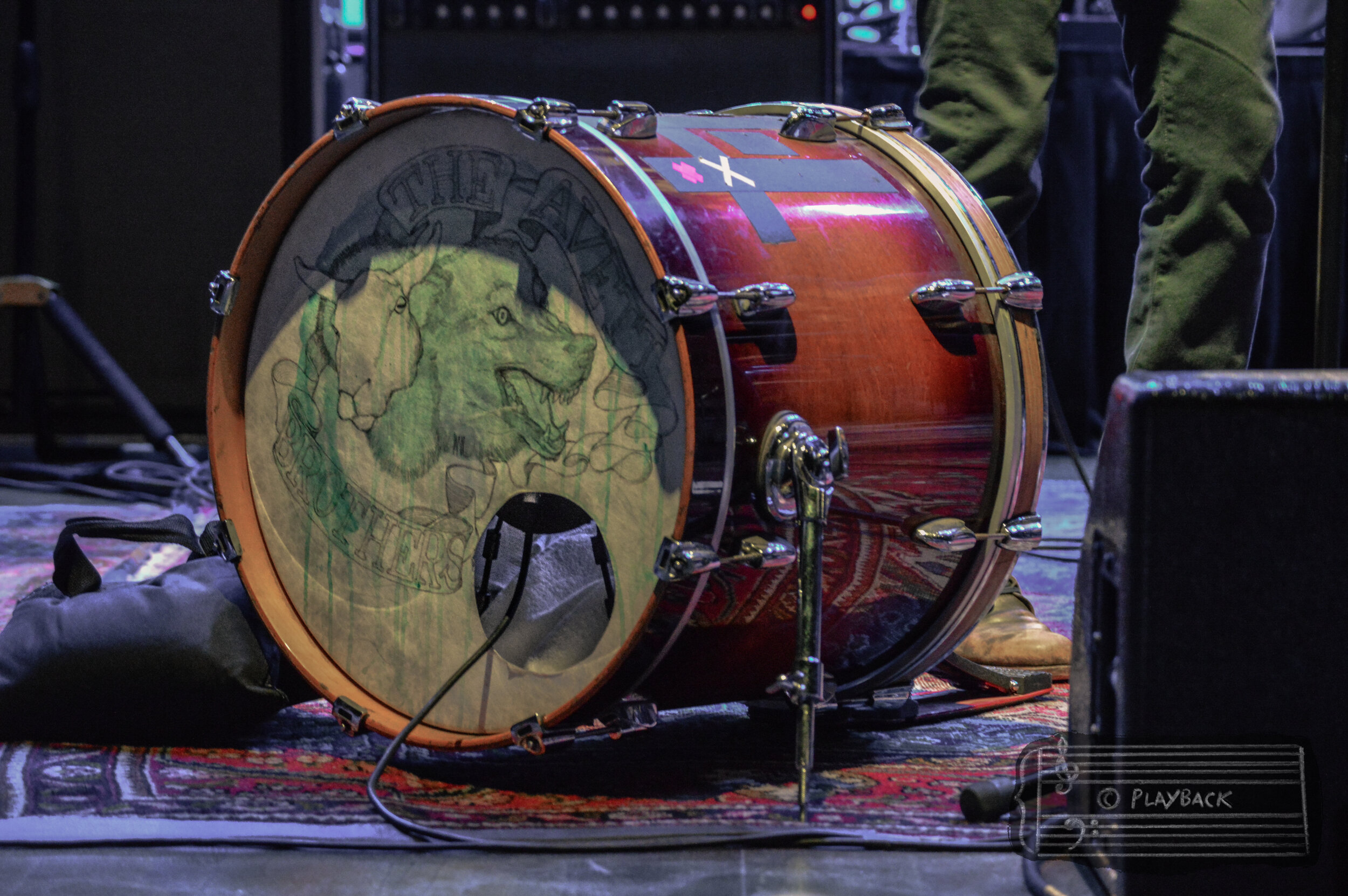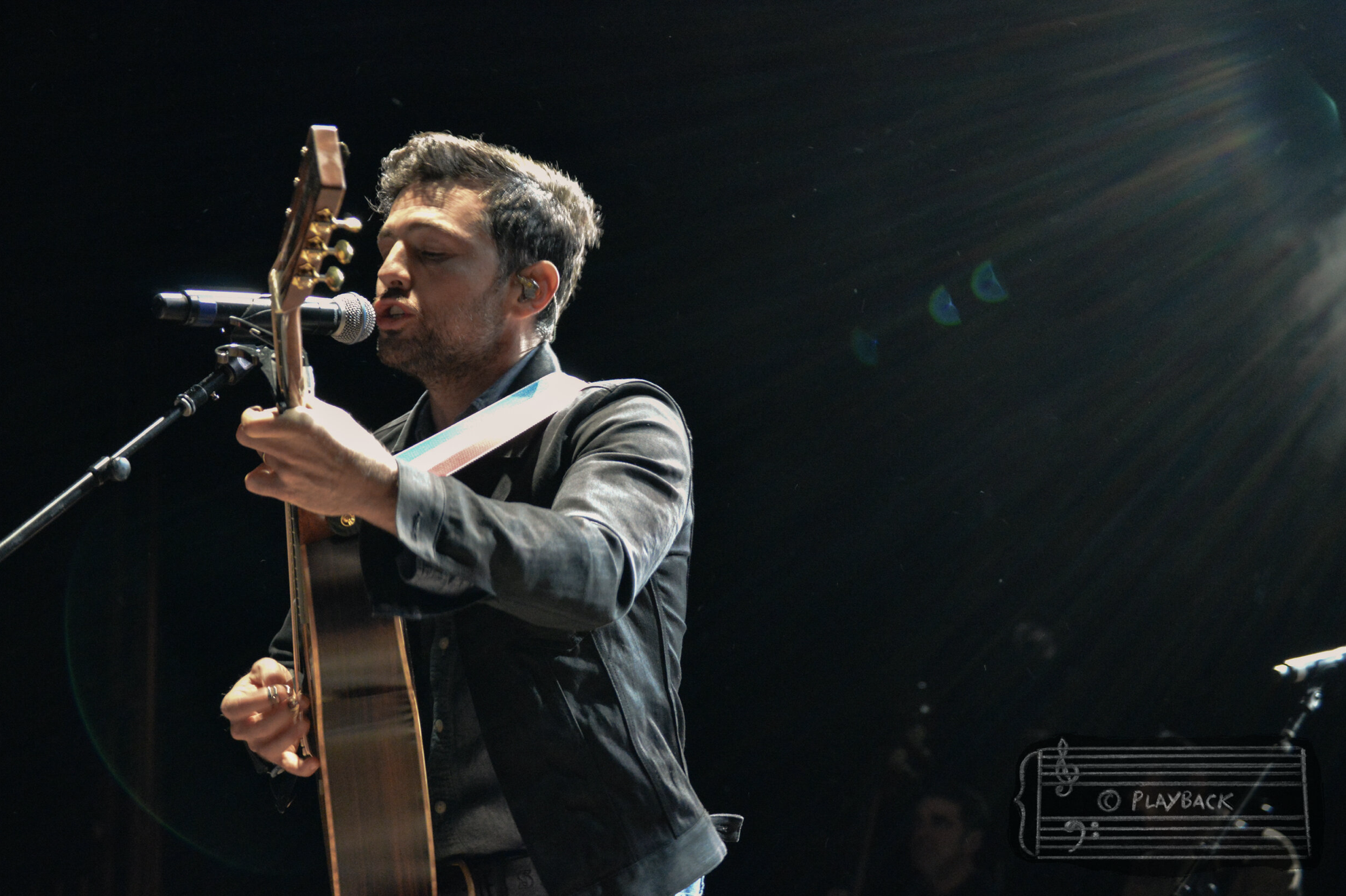HEART OF A SONG: THE AVETT BROTHERS, CLOSER THAN TOGETHER & THE GRAVITY & GRANDEUR WITHIN THEIR CATALOGUE
I could study every lyric. Memorize every major and minor note. Put it all under magnified glass as if it could be decoded and wrung of further meaning. But I know it wouldn’t matter. I’d never be able to pinpoint what has made so much of it feel so close so instantly, near to me as if all those songs were just passed down stories I’d heard one thousand times before. Though the legions that follow them around the world has proven that what I feel is not at all unique, the experience of listening to their music still manages to be personal, genuine and absent of the cynicism that can trail artists that either quickly – or in their case, slowly – become widely known and recognized by mainstream audiences. Because it can feel cold, even dirty when art and commerce collide, when the big business of the music industry makes taking a record out of its sleeve feel like opening a bottle of coke. But if hollowness and cliché has reached them, they hide it remarkably well. Over the course of nearly twenty years, ten full-length studio albums, two EPs, a handful of stand-alone singles and countless more songs that can be sung back to them in concert despite never even seeing release, they have created a catalogue of music that feels overwhelmingly candid and sincere. Rarer still is how the weaker parts of their discography remain deserving of attention, possessing even the smallest something – an interesting bridge here, a beautiful harmony or striking lyric there – that is worthy of returning to. Most of all, their ability to say so much with a simple turn of phrase – and the power and restraint with which they wield such brevity – has been their greatest superpower. All of which has made for a potent connection between artist and stranger – one that can’t be measured, weighed, bought or sold.
The Avett Brothers’ sound is colossal – unabashedly introspective, explosive and tender, sometimes all at once – the bastard spawn of rock, folk and bluegrass. Roll the dice and you’ll find another side of the die. They appear hungry to express themselves in ways they haven’t and while some innovations are subtle, perhaps even microscopic, others feel staggering. But whether creative developments are slight or vast, impromptu or deliberate, every ingredient has proven to be vital in shaping the world at the heart of a song. It’s Scott’s weary voice, unaccompanied until the strum of an acoustic cradles the last word he sings at the beginning of “Winter in My Heart.” It’s the guitars and drums, mimicking the slow crash of a wave in “Never Been Alive.” It’s the quickly traded vocals that close “Distraction # 74,” the fifties balladry of “Pretend Love,” the lazy, sea saw rhythms that explode in “And It Spread.” Listen close and soon you’ll find it everywhere – as bold as the hazy electronica rippling through “You Are Mine” and as easy to miss the first time as the deep breath that starts “I Wish I Was.” In hindsight, those idiosyncrasies are essential in providing a piece of music with its own mindset and character. Because no matter how inconsequential it seems, what would “Left on Laura, Left on Lisa” be without Seth howling his backing vocals until your certain his voice might just give out? A different song completely.
On Closer Than Together, The Avett Brothers embrace contradiction and transcend genre once more, opening their quietest collection to date with one of their best and heaviest songs yet. “Bleeding White” unlocks a lethal sound and story that digs into the darker side of human nature and wavering loyalty, depicting a time when one, not even our narrator, can be trusted. It’s a whirlwind, as close to the distortion drenched hard rock they grew up with as anything they’ve ever captured in the studio. But it’s when the dust settles that the true tone of the record begins to emerge. Trading that defiance and attitude for humility and composure, Closer Than Together feels remarkably low key and understated, often unfolding like a long lost sixties folk album. Like so much of their work, the foundation upon which everything stands is goodwill, even when contemplating the hard truths and omnipresent violence that can make kindness and sanity feel like it’s in short supply in 2019. “We Americans” and “Bang Bang” explore serious matters with earnestness, though lyrically, they can both sometimes feel a bit too on the nose and disconnected from their melodies – rich in meaning but lacking in the poetry and conciseness that’s made other efforts feel profound. But what may be most interesting about their latest LP is how even when exploring different, difficult subjects, the core sentiment behind their songs – stretching all the way back to the beginning – has remained the same.
“Don’t go revenging in my name” - “Murder In The City,” The Second Gleam, 2006
“Wouldn’t it be fine to stand behind the words we say in the best of times?”
- “Life,” The Carpenter, 2012
“We came to leave behind the world a better way” - “Salvation Song,” Mignonette, 2004
“When at first I learned to speak, I used all my words to fight, with him and her and you and me, but it’s just a waste of time” - “I And Love And You,” I And Love And You, 2009
The belief that cruelty and conflict are both a needless, misguided use of our short time here is a theme that has found its way into their music before, although the muse they have followed has never felt less abstract or metaphorical. Because it does seem unlikely that Closer Than Together marks the first time they’ve written about turmoil in the world around them, and more likely that inspiration is being worn on their sleeve in a different way. It’s a notion that John Lennon once conveyed in his answer to a reporter back in 1965, when he was asked why The Beatles hadn’t made any anti-war music. “All our songs are anti-war,” he replied, illuminating how the swirl of thoughts and experiences that form a tune can cast a wide net. The subject matter of their work was almost irrelevant, Lennon’s response implied – as long as it spilled from the heart and mind of an anti-war writer, than it was instilled, either consciously or unconsciously, with an anti-war point of view. After all, how could the expression of an artist be anything other than a touchstone of their beliefs, morals and perspective? It can’t and it shouldn’t. Songs grow and change on the road towards connection, symbolizing different meanings for those who hear them, living their own separate lives completely independent of their creator – and that’s part of their beauty. But anything that’s worth the price of admission will always owe its integrity and soul to its architect.
On “Tell The Truth,” the warm tone of an electric piano ushers in a relaxed sound that’s as effortless and natural as breathing itself. Soon, that patience becomes another instrument, inhaling and exhaling its way through arrangements as they blossom and change, guided by a feather soft touch that makes melodies feel open, winding and bare. But it’s when songs are at their most fragile and vulnerable that it almost seems as if the records most beautiful moments are in need of protection themselves – like a flower that’s looked after and shielded from some of the very same forces of nature that allowed it to live in the first place. Yet for all of those arresting instances, Scott’s lead vocal on “When You Learn” is that element at its most definitive. Echoing how small and powerless guilt and shame can leave you, his voice is gentle and soft, a beacon of the trouble we seek to move past. “I’m bracing for loneliness, I know it’s coming,” he later sings in “Who Will I Hold,” a succinct illustration of the quickly changing roles and stages within a lifetime. Although Closer Than Together takes the strong sense of distance and separation that hangs in the air and wraps itself in its many dimensions, infusing “Better Here” with a solitude that aches. Retracing those steps back to the inevitable first page of an individual’s story, “C Sections and Railway Trestles” celebrates the blur of labor and delivery from the point of view of a new parent watching their child open their eyes to the world. It’s a beam of light in the dark – an altogether uplifting, funny and jubilant ode to the frenzied first days in a brand new chapter, radiant with promise. Closing out the album, “It’s Raining Today” is a slower kind of daydream, albeit one that ebbs and flows like a welcomed grey sky that can stop time and bring solace – if only for an instant. At one point, piano notes mimic the sound of raindrops, adding hints of the playful and surreal to verses that are as unhurried and peaceful as a sky changing colors.
I don’t have a favorite Avett Brothers record. I probably never will. There’s something about the idea of considering such an infinite amount of music that feels about as impossible as trying to count all the stars in the sky. Because there’s just so many. So many perfect songs, so many imperfect songs, scattered across so many albums and years. Then there’s the moments of pure magic – the ones that can’t be planned, replicated or rehearsed. The stars just seem to align as if they were always meant to. I’m not sure you can reach that place without giving yourself over to the process completely, without trusting that if you jump, you’ll land. Because what would they be without that search, those risks? A different, lesser band completely.
By Caitlin Phillips (Playback Photography)
10.30.19
































